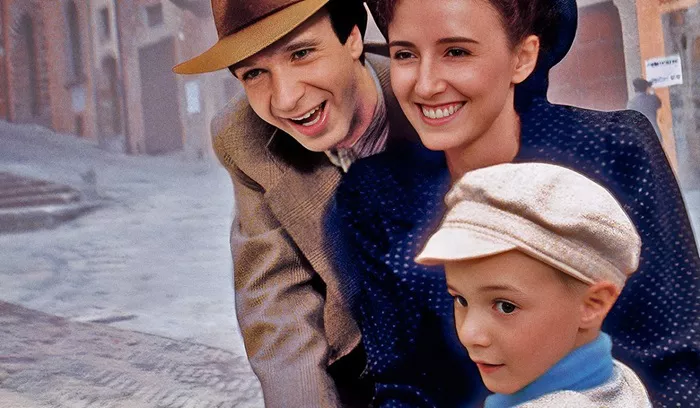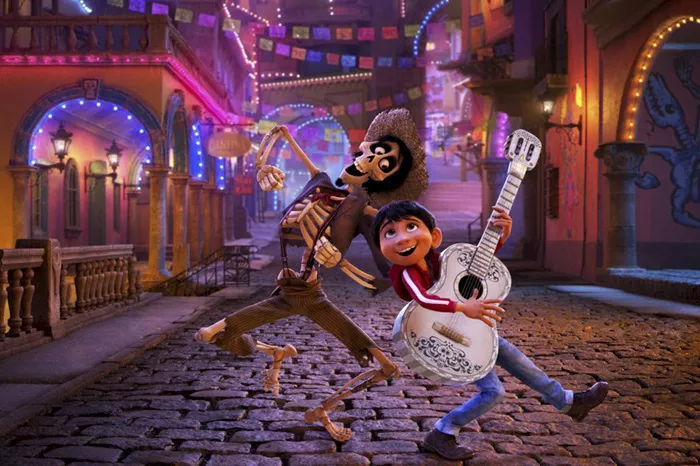“Life is Beautiful,” directed by Roberto Benigni, is a poignant film that captured the hearts of audiences worldwide with its blend of humor and tragedy. Released in 1997, this Italian masterpiece garnered significant acclaim, particularly during awards season. The question on many cinephiles’ minds remains: How many Oscars did “Life is Beautiful” win? Let’s delve into the journey of this remarkable film and its triumphs on Hollywood’s biggest night.
The Making of “Life is Beautiful”
Before exploring its accolades, it’s crucial to understand the genesis of “Life is Beautiful.” Roberto Benigni, known for his comedic prowess, took on the dual role of director and lead actor in this film. Set against the backdrop of World War II, the story follows Guido Orefice, a Jewish Italian man, as he navigates the perils of a concentration camp with his young son, Giosué. Despite the harrowing setting, Guido employs humor and imagination to shield his son from the horrors of their reality. This unique blend of humor and tragedy became the hallmark of “Life is Beautiful,” setting it apart from traditional war dramas.
Critical Acclaim and Audience Reception
Upon its release, “Life is Beautiful” received widespread critical acclaim for its poignant storytelling and powerful performances. Critics praised Benigni’s ability to balance humor and tragedy, turning what could have been a bleak narrative into a tale of hope and resilience. Audiences around the world were equally moved by the film’s emotional depth and universal themes of love and sacrifice. As “Life is Beautiful” made its way through the festival circuit and into theaters, it became increasingly evident that this was not just another movie—it was a cinematic experience that left a lasting impact on all who watched it.
See Also: Wrestle! Why was Dad successful in China?
The Oscars: A Night to Remember
The pinnacle of recognition in the film industry is undoubtedly the Academy Awards, where the best of the best are honored for their contributions to cinema. In 1999, “Life is Beautiful” had its moment in the spotlight at the 71st Academy Awards ceremony. Nominated in multiple categories, including Best Picture, Best Director, and Best Actor for Roberto Benigni, anticipation was high for how many Oscars “Life is Beautiful” would ultimately take home.
Best Foreign Language Film
One of the most significant achievements for “Life is Beautiful” at the Oscars was its win for Best Foreign Language Film. This category celebrates the best non-English language film of the year, highlighting the richness and diversity of global cinema. For “Life is Beautiful,” this win was a testament to the film’s universal appeal and its ability to resonate with audiences regardless of language or cultural background. It solidified the film’s place in cinematic history and introduced it to a broader international audience.
Best Original Score
In addition to its win for Best Foreign Language Film, “Life is Beautiful” also received the Oscar for Best Original Score. Composer Nicola Piovani’s hauntingly beautiful music served as the perfect accompaniment to the film’s emotional journey, enhancing the viewer’s experience and further immersing them in Guido and Giosué’s world. Piovani’s score captured the essence of “Life is Beautiful,” elevating its themes of love, resilience, and hope to new heights.
Roberto Benigni’s Historic Win
The crowning moment of the night came when Roberto Benigni was announced as the winner of the Best Actor award. His portrayal of Guido Orefice was nothing short of extraordinary, blending humor and heartbreak in a performance that resonated deeply with audiences worldwide. Benigni’s win was historic, making him the first actor to win the Oscar for a non-English language role since Sophia Loren’s win in 1961. His exuberant acceptance speech, which saw him climb over seats and express his joy in broken English, remains one of the most memorable moments in Oscar history.
Impact and Legacy
Beyond its Oscar wins, “Life is Beautiful” left an indelible mark on cinema and popular culture. Its message of hope and resilience in the face of adversity continues to inspire audiences around the world, reminding us of the power of laughter and love even in the darkest of times. The film’s success also paved the way for greater recognition of international cinema at the Academy Awards, highlighting the importance of diverse storytelling and perspectives in the world of film.
Conclusion
In conclusion, “Life is Beautiful” won three Oscars at the 71st Academy Awards ceremony: Best Foreign Language Film, Best Original Score, and Best Actor for Roberto Benigni. These wins not only solidified the film’s place in cinematic history but also celebrated its powerful storytelling and universal themes. Nearly three decades after its release, “Life is Beautiful” continues to captivate audiences with its poignant portrayal of love, laughter, and the triumph of the human spirit—a testament to the enduring power of cinema. So, to answer the question, “How many Oscars did ‘Life is Beautiful’ win?”—it was three, but its impact far exceeds mere numbers, leaving an everlasting legacy in the hearts of viewers worldwide.
























